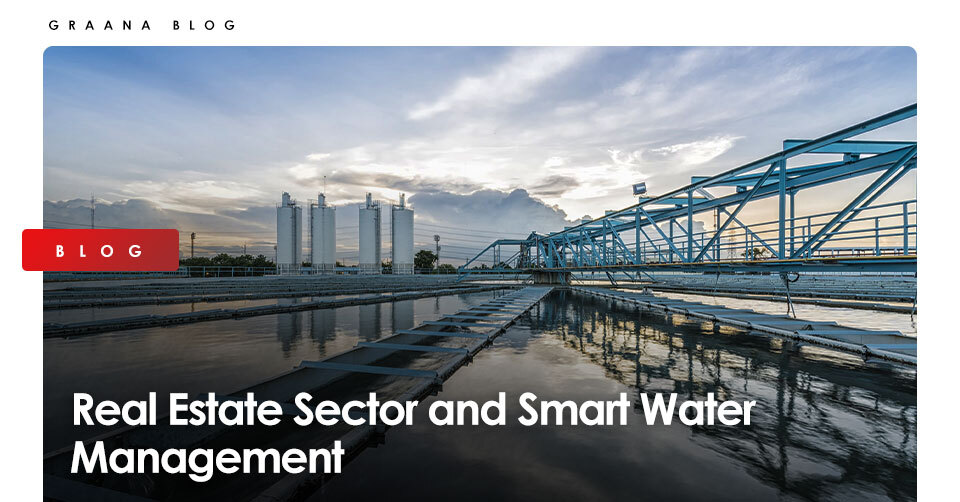
It may seem that water is abundant to cater to our needs however, this perception can be overturned by the mere fact that our water resources are depleting like any other. Unfortunately, Pakistan is among those countries where the dark clouds of water scarcity loom and according to the various statistics by 2040 the country will hit absolute scarcity by 2040. Real estate and water are both linked together in multiple ways, be it the provision of water in the households or be it the water used for land irrigation the real estate sector has major stakes in the availability of water.
Graana.com through this blog brings to the light how water can be best managed and conserved in order to meet the upcoming challenges. Almost every country is encountering a conundrum where the growing population, water scarcity and increasing demand for housing are creating unprecedented challenges for the authorities. By adopting smart water management techniques Pakistan can avoid water scarcity in the forthcoming time.
Concept of Smart Water Management
As evident from the name, Smart Water Management is a system assisted by technology in order to manage the supply of water in the cities. This system can become an efficient tool of managing water and promoting the agenda of sustainable development as it reduces the operational cost while considering the supply and demand of water. Smart management is all about collecting real-time data and then communicating it to the managers and system operators.
In developing countries, this concept is gaining popularity as it is helpful in reducing the transaction cost which otherwise puts a burden on the financial budgets of the municipalities. This technology can provide incentives to the private sector to employ the latest technology which can prove useful in strengthening the supply of water in the localities.
Smart Cities and Water Management
Sustainable development has become a major talk of the town. In the discourse of smart cities, smart water management occupies a dominant position. By employing technology in water management, ad-hoc decision making can be avoided in view of the real-time data. In order to pursue the smart water management system a central authority can be created which can collect data from various organisations for smart water management. The European Union (EU) under its UrbanWater project has developed a web-based urban water management system for effective urban water management. Through the assimilation of estimates based on weather predictions and surface water reserves, customers will be able to obtain the right information to effect change in consumption patterns in urban areas.
Smart Metering
As per the statistics, the per capita consumption of water in Pakistan is 30ltr per capita per day. The variability in the supply of water depends on the variation in season, and the usage of individuals at every hour. For collecting real-time data smart meters can prove handy as they have the ability to collect information and transmit information in a prompt manner. Some examples of smart meters include flow meters, rain gauges and acoustic devices. Singapore has taken the lead in smart water management as it has established a Public Utility Board for Smart Water Grid System. In Punjab 86pc of the urban population is dependent on the water supply scheme, tap water and electric motor.
Reduction of Non-Revenue Water
One of the major problems that the water supply in rural and urban areas face alike is the non-revenue water (NRW). The term is used to describe a phenomenon where the water is lost before it reaches the homes in the form of leakages, lapses in metering, and illegal connections. This is the foremost challenge that is being encountered in urban management. This conundrum is specific to South Asian states where water conservation is given the least focus and most of the water is wasted before it even reaches the households. By adopting Smart Water Management (SWM), non-revenue water can be conserved and utilised.
Equity in Billing
Smart technologies to water management can bring a new transformation in the billing of water as a billing system based on equity can be introduced. Depending on the usage of water a consumer can be charged depending on his consumption rather than charging a consolidated amount which helps to negate the free riders who consume water more than any other consumer.
For news and blogs, visit Graana.com.
ISLAMABAD, Pakistan – April 23, 2025 – Chaaye Khana, Pakistan's popular cafe renowned for its…
ISLAMABAD: Prime Minister Shehbaz Sharif laid the foundation stone for the Murree Road underpass on…
DUBAI: Pakistani real estate developers and representatives showcased a range of commercial and residential investment…
ISLAMABAD: Capital Development Authority (CDA) is currently undertaking a major Rs652 million project to upgrade…
Karachi – Mayor Barrister Murtaza Wahab has announced the launch of a citywide anti-encroachment operation…
ISLAMABAD: CDA Chairman Muhammad Ali Randhawa has directed the immediate restoration of 23 non-functional water…